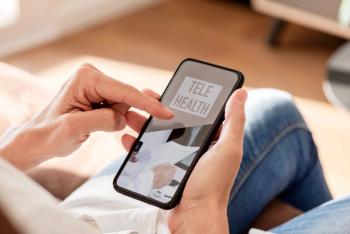
Telehealth is here to stay; reimbursement needs to follow
It will take more than a face value commitment to telehealth for physicians and patients to feel the impact.
At the beginning of the COVID-19 pandemic, Congress recognized the immense need for virtual care. It quickly waived statutory barriers previously in place, enabling expanded access to telehealth and providing federal agencies with the flexibility to allow healthcare providers to deliver care virtually. But these revisions were temporary and will soon expire. This is an issue for two reasons. First, patients have expressed their interest for using telehealth, and using it to continue their relationship with their trusted physician. Second, the value of telehealth extends beyond the pandemic.
Since early June, the positive test rate for COVID-19 cases has nearly doubled
Telehealth Has Been a Lifeline
Over the last five months telehealth has proven essential for patients
Telehealth will continue to be a necessary component of ongoing patient care and engagement long after the current health crisis ends. However, lack of permanent reimbursement remains a significant concern. According to a
Calling for Reimbursement Reform
While at this point the federal government has not yet made permanent provisions for telehealth reimbursement, many options are now on the table. The Trump Administration recently proposed
Many, including physicians, legislators, and advocacy groups, have
Reimbursement should be addressed at both the federal and state level, and there are multiple provisions that should be taken into consideration by regulators. Many physicians and organizations are calling for the following:
- States working with advocacy groups to understand the needs of their specific regions, and supporting telehealth modalities accordingly
- Telehealth visits being reimbursed on par with in-person visits
- Elected officials increasing regulatory flexibility such as not requiring in-person visits before telehealth visits
- The removal of obsolete restrictions on the location of the patient to ensure that all patients can access care at home
- Maintenance and enhancement of HHS’ authority to determine appropriate providers and services for telehealth
- The ability for Federally Qualified Health Centers and Rural Health Clinics to furnish telehealth services after the public health emergency
- Making permanent the Health and Human Services (HHS) temporary waiver of authority for future emergencies
The industry has recognized that telehealth is essential to the health and safety of patients and staff, preventative care, and reducing healthcare costs, as well as ensuring the stability of providers; however, it will take more than a face value commitment to telehealth and an overhaul in payment models for physicians and patients to feel the impact.
This is a critical topic for physicians and practices. Legislators need to hear from their constituents about the importance of moving legislation forward. Providers and patients can call or write to share their stories of how telehealth has positively impacted lives. There is power in numbers, and providers should also look to join in advocacy efforts of their professional associations. The American Medical Association, American Academy of Family Physicians, and American Academy of Pediatrics are just a few of many associations actively advocating for telehealth and providing resources to their members. The industry must work together and stand with physicians and advocacy groups in supporting proactive action until this issue is addressed. The pandemic changed the way we deliver healthcare. Reimbursement needs to follow.
About the Author
Michael Morgan is CEO of
Newsletter
Optimize your practice with the Physicians Practice newsletter, offering management pearls, leadership tips, and business strategies tailored for practice administrators and physicians of any specialty.






